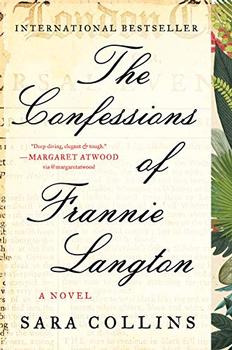Summary | Excerpt | Reviews | Beyond the book | Read-Alikes | Genres & Themes | Author Bio

Willie Jones, an eighteen-year old black teenager, has been found guilty of the rape of a white woman Grace and sentenced to death at midnight by electric chair. For the small communities of St. Martinville and New Iberia in Louisiana in October 1943, this is a significant event–a cause for celebration for some, but disturbing and concerning to others. The Mercy Seat is the story of this day.
Winthrop narrates the story of Willie and the community from a multitude of points of view. There is Willie, patiently waiting for his appointment with death and his father, Frank, trying to see his son one last time. There is the local prosecutor, Polly Livingstone, whose son, Gabe, and wife, Nell, question his decision to ask for the death penalty for Willie. After all, it is rumored that Willie and Grace were in love.
There is also a young white man called Lane, responsible for delivering the electric chair to New Iberia despite the fact that he is serving out his sentence as a convicted murderer. Lane is out of prison for this one day only as he is to drive the truck and assist his guard, Captain Seward, who will carry out the execution.
Portraying the Jim Crow South can be tricky, and many pitfalls await a writer taking on such a diverse cast of characters – black and white, male and female, young and old, human, imperfect. But Winthrop handles every challenge. Each character is well-realized, rounded and believable. Their emotions fill the pages and as their stories intersect and the hours creep by, bringing the moment of execution closer, secrets are revealed. Polly's teenage son Gabe decides to sneak out to see the execution for himself. Seward drinks so many whiskies he might not be able to manage the execution. Frank needs urgent help if he is to reach New Iberia in time. And Willie waits for midnight. The novel has a lyrical quality. The tone is slow and warm, like the Indian summer day in the story, but the tension ratchets up very effectively.
This is a novel where contrast and parallels are important: the treatment of animals versus the treatment of children and the criminal justice system's different sentencing of Willie and of Lane, are just two examples. The Mercy Seat is a tense and haunting novel that doesn't shy away from darkness but remains hopeful, even beautiful, and painfully moving as all the various narratives wrap up in a powerful conclusion.
![]() This review was originally published in The BookBrowse Review in May 2018, and has been updated for the
May 2019 edition.
Click here to go to this issue.
This review was originally published in The BookBrowse Review in May 2018, and has been updated for the
May 2019 edition.
Click here to go to this issue.

If you liked The Mercy Seat, try these:

by Nyani Nkrumah
Published 2024
Resonant with the emotional urgency of Alice Walker's classic Meridian and the poignant charm of Sue Monk Kidd's The Secret Life of Bees, a gripping debut novel of female power and vulnerability, race, and class that explores the unlikely friendship between a precocious black girl and a mysterious white woman in a small Mississippi town in the ...

The Confessions of Frannie Langton
by Sara Collins
Published 2020
A servant and former slave is accused of murdering her employer and his wife in this astonishing historical thriller that moves from a Jamaican sugar plantation to the fetid streets of Georgian London.




If passion drives you, let reason hold the reins
Click Here to find out who said this, as well as discovering other famous literary quotes!
Your guide toexceptional books
BookBrowse seeks out and recommends the best in contemporary fiction and nonfiction—books that not only engage and entertain but also deepen our understanding of ourselves and the world around us.